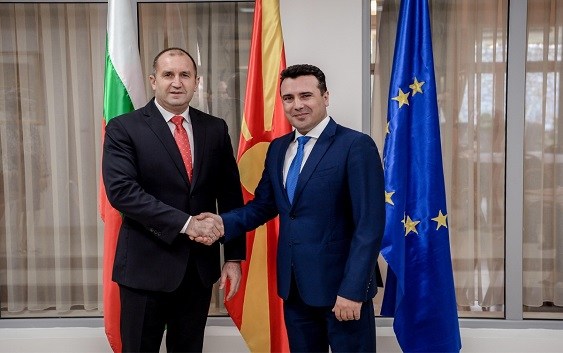A flurry of activity is expected in the coming days as EU officials led by Portugal and German diplomats will try to get Bulgaria to allow Macedonia to open its EU accession talks, together with Albania. This would avoid the threat of having Albania advance alone which would inflict a major humiliation on the Zaev regime.
EU Enlargement Commissioner Oliver Varhelyi and Portuguese Foreign Minister Augusto Santos Silva will visit Skopje and Sofia tomorrow, and activate what Zaev and his Deputy Prime Minister Nikola Dimitrov announced as a novel strategy. Bulgaria does not have a political Government, is heading toward elections, and its caretaker Government declared that it does not have authority to change the consensus position to block Macedonia until Zaev delivers on a number of concessions in the area of national history and identity he promised to Bulgarian leaders. Zaev dug in and said he will refuse to negotiate on national identity matters, while making two trips to Brussels and sending President Pendarovski there as well, to lobby for a pressure campaign against Bulgaria. He also launched an attack on Commissioner Varhelyi accusing him and V4 leaders such as Slovenian Prime Minister Janez Jansa of working against Macedonia after Varhelyi said that Albania could advance alone if Macedonia remains stuck.
Another part of the plan is a possible visit by the foreign ministers of Austria, the Czech Republic and, yes, Slovenia, to Macedonia on Saturday. Zaev also met with Greek Prime Minister Kyriakos Mitsotakis who, Zaev said, had some “creative ideas” on how to overcome Bulgarian opposition. Mitsotakis met with Bulgarian President Rumen Radev who is the only politician in Sofia with some authority to act on the matter. Zaev also made a statement aimed at Radev, praising him and promising that he will “surely win the next presidential elections if he resolves the dispute” with Macedonia. Zaev added that the Bulgarian voters clearly punished parties who were hardline toward Macedonia – mainly the VMRO-BND party which did not win seats in the Parliament at the last election, and Borisov’s GERB party. The previous Bulgarian Parliament adopted a consensus position to demand concessions from Macedonia and to use the veto threat if Zaed doesn’t deliver – the position was supported even by the party representing the Turkish minority there, and the populist parties who gained in the April elections at the detriment of Borisov’s and Radev’s establishment parties, are also hardline toward Macedonia.




Comments are closed for this post.